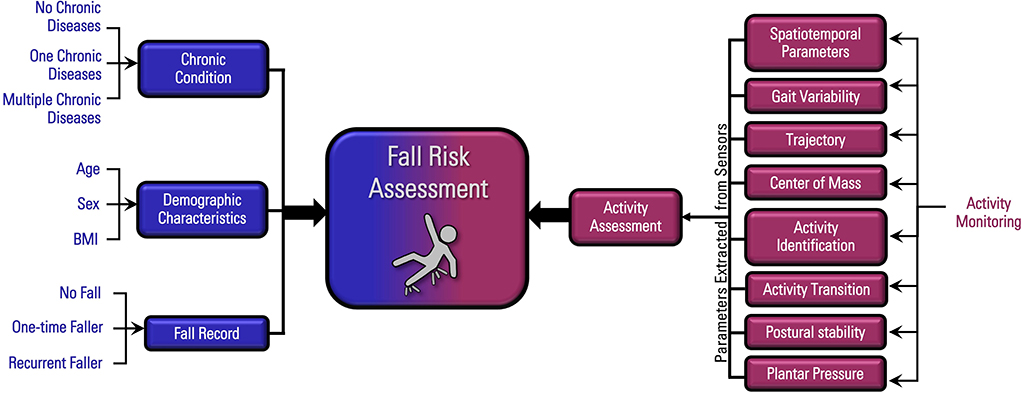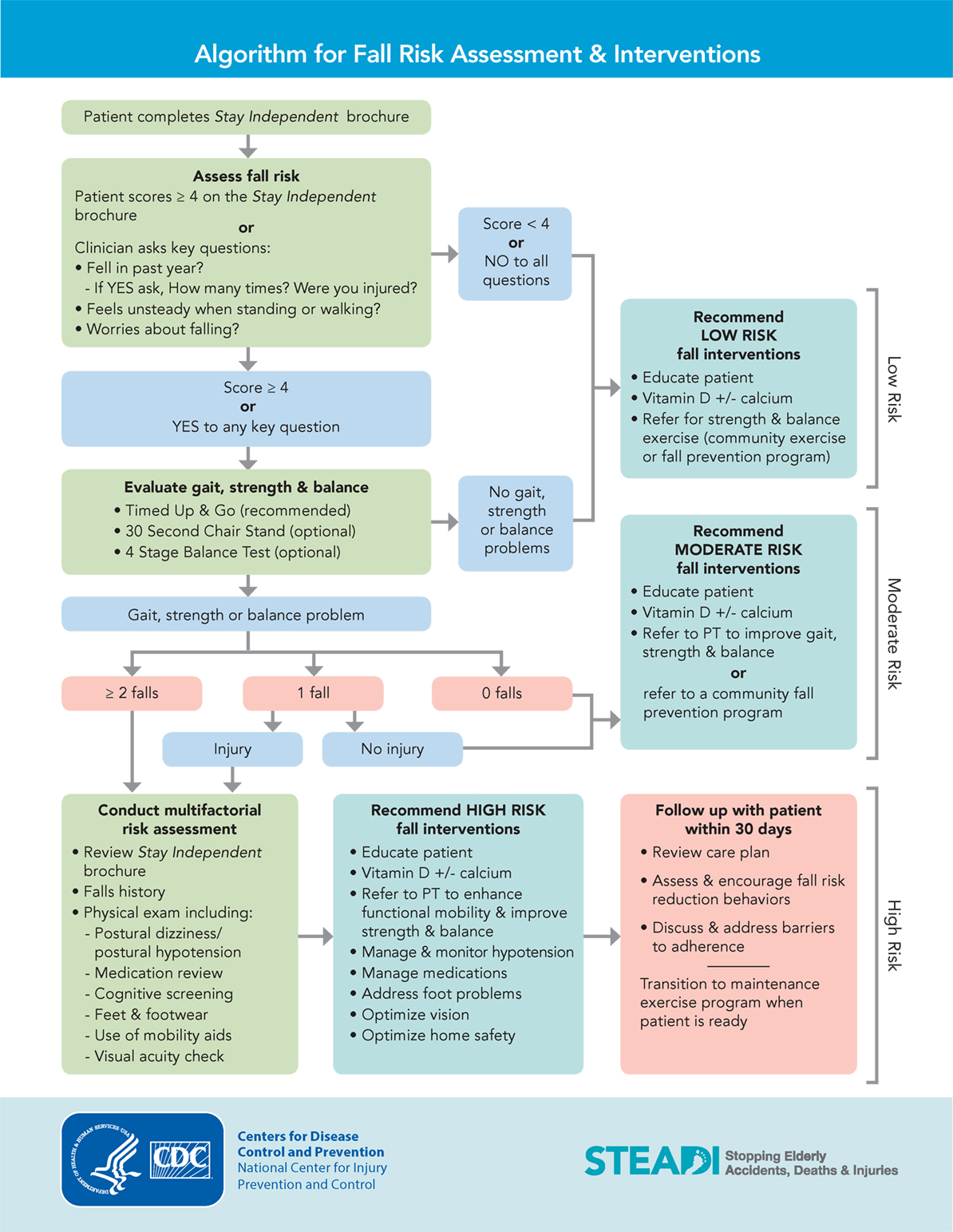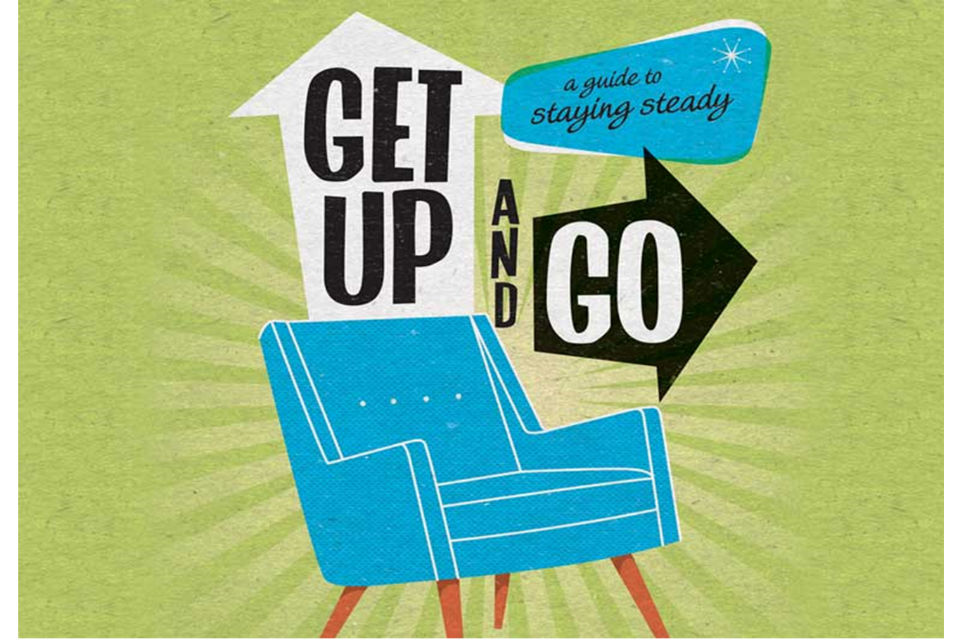The Of Dementia Fall Risk
The Of Dementia Fall Risk
Blog Article
The 10-Minute Rule for Dementia Fall Risk
Table of ContentsThe 6-Second Trick For Dementia Fall RiskUnknown Facts About Dementia Fall RiskThe Buzz on Dementia Fall Risk3 Simple Techniques For Dementia Fall RiskThe Definitive Guide for Dementia Fall Risk
Guarantee that there is an assigned area in your medical charting system where personnel can document/reference ratings and record pertinent notes associated to drop avoidance. The Johns Hopkins Fall Risk Assessment Device is one of several devices your team can make use of to aid stop negative medical events.Client falls in hospitals prevail and devastating damaging occasions that linger in spite of decades of initiative to decrease them. Improving interaction throughout the evaluating registered nurse, treatment group, person, and individual's most included good friends and household may enhance fall avoidance efforts. A group at Brigham and Female's Healthcare facility in Boston, Massachusetts, sought to create a standardized autumn prevention program that focused around enhanced communication and person and family members involvement.

The advancement team highlighted that effective application depends upon client and personnel buy-in, integration of the program into existing process, and fidelity to program processes. The group kept in mind that they are facing how to ensure continuity in program implementation throughout durations of dilemma. During the COVID-19 pandemic, for instance, a rise in inpatient drops was related to restrictions in client interaction in addition to limitations on visitation.
Not known Details About Dementia Fall Risk
These occurrences are usually considered preventable. To execute the treatment, organizations require the following: Access to Loss suggestions sources Fall suggestions training and re-training for nursing and non-nursing staff, consisting of new registered nurses Nursing process that permit individual and family interaction to perform the falls analysis, guarantee use the prevention strategy, and carry out patient-level audits.
The outcomes can be highly damaging, often increasing client decrease and causing longer healthcare facility stays. One research study approximated keeps increased an extra 12 in-patient days after a patient autumn. The Loss TIPS Program is based upon appealing people and their family/loved ones across three primary processes: evaluation, personalized preventative treatments, and auditing to ensure that individuals are taken part in the three-step fall prevention process.
The person assessment is based upon the Morse Loss Scale, which is a verified loss risk evaluation device for in-patient healthcare facility setups. The scale includes the 6 most usual factors patients in hospitals fall: the client autumn background, risky conditions (including polypharmacy), use IVs and various other outside tools, mental condition, stride, and flexibility.
Each risk element links with several workable evidence-based treatments. The registered nurse develops a strategy that incorporates the interventions and shows up to the care team, client, and family on a laminated poster or published aesthetic help. Registered nurses establish the strategy while meeting the person and the person's family members.
A Biased View of Dementia Fall Risk
The poster serves as an interaction tool with various other members of the client's treatment group. Dementia Fall Risk. The audit element of the program includes assessing the person's understanding of their risk factors and avoidance strategy at the unit and health center levels. Registered nurse champs conduct a minimum of five individual interviews a month with people and their households to look for understanding of the fall avoidance strategy

An approximated 30% of these drops result in injuries, which can vary in seriousness. Unlike other adverse occasions that call for a standard scientific reaction, loss avoidance depends highly on the demands of the individual.
8 Simple Techniques For Dementia Fall Risk

Based upon auditing results, one website had 86% conformity and 2 sites had more navigate to this site than 95% conformity. A cost-benefit analysis of the Autumn ideas program in eight hospitals approximated that the program expense $0.88 per client to implement and caused financial savings of $8,500 per 1000 patient-days in direct costs connected to the prevention of 567 drops over 3 years and eight months.
According to the technology group, organizations curious about carrying out the program ought to perform a readiness assessment and drops prevention gaps evaluation. 8 Furthermore, companies ought to ensure the needed infrastructure and operations for execution and create an implementation strategy. If one exists, the organization's Autumn Avoidance Job Pressure need to be involved in preparation.
How Dementia Fall Risk can Save You Time, Stress, and Money.
To start, organizations should guarantee completion of training components by registered nurses and nursing assistants - Dementia Fall Risk. Health center staff ought to analyze, based upon the requirements of a healthcare facility, whether to make use of an electronic like this health record hard copy or paper version of the fall prevention plan. Executing groups must recruit and train registered nurse champions webpage and develop procedures for auditing and reporting on autumn data
Personnel require to be included in the procedure of upgrading the operations to involve patients and family in the analysis and avoidance strategy procedure. Equipment needs to remain in place to ensure that systems can comprehend why a loss took place and remediate the reason. Extra especially, registered nurses must have networks to give recurring responses to both team and device management so they can readjust and improve loss avoidance operations and communicate systemic issues.
Report this page